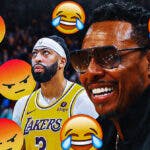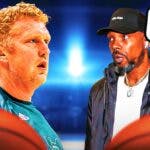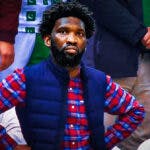For the most part, the Boston Celtics have rounded up their 2020 offseason. As normal, it was filled with them being linked to multiple prominent figures all while attempting to retain some free agents of their own in the process. As expected, they locked up franchise star Jayson Tatum, signing him to a five-year, $195 million rookie max extension.
This offseason was set to cause some headaches for most organizations. The start of next season was accelerated to Dec.22, which gave teams an unpleasantly short amount of time to complete any trades and signings compared to their normal windows. The NBA draft was also a bit of a nuisance seeing as how teams were limited to the number of players they could workout given the ongoing pandemic.
The Celtics knew that this would be a tricky offseason regardless of the path they opted to walk down. They were bound to be a club that spent well into the luxury tax given the amount of talent on the roster that commands a heavy bag for their services. All the while, the front office was aware that they couldn't compete with the same roster that they possessed last season. After being a few games from reaching the NBA Finals, the Celtics realized that they were a couple of bench pieces away from making some legitimate noise.
Now, they head into the 2020-21 season with a squad that doesn't shoot up the rankings given their offseason moves, but they still retain their label as one of the top dogs in the Eastern Conference.
Grade: B-
At first, the Celtics' chances of remaining relevant next season were sinking fast. There were multiple rumors circulating that Gordon Hayward had his eyes set on returning to his home state and teaming up with the Indiana Pacers. In good nature, the Celtics and Pacers began exploring multiple sign-and-trade avenues that could benefit both parties. For the Celtics, they reportedly wanted more than what the Pacers were offering, which was a package headlined by Myles Turner.
Simultaneously, the Celtics couldn't get too deep into talks with other high-end free agents until they had a final decision regarding Hayward's dilemma. The end result was unexpected by most of the world, with the Charlotte Hornets swooping in for Hayward on a 4-year, $120 million deal that officially ended his time in Beantown. The Celtics could still walk away from Hayward's departure with possibly a hefty trade exception if they are able to facilitate a sign-and-trade with the Hornets, but that remains to be seen.
The Celtics were able to re-up in the big man department later on. They had already elected to part ways with both Enes Kanter and Vincent Poirier, leaving only Daniel Theis and Robert Williams. However, Tristan Thompson wasn't reportedly a name on their radar. It was widely speculated after a while that he'd return to the Cleveland Cavaliers on a team-friendly deal. Grabbing Thompson for a Celtics' frontcourt that has been less than fortunate in offensive rebounding was a must-win for the front office.
As for Teague, he comes highly regarded by head coach Brad Stevens, which means that Stevens is likely already working on some efficient plays for the 32-year old guard. He'll likely serve as the backup to Kemba Walker, but he may see some starter minutes at the beginning of the season given Walker's uncertainty in being ready for opening night due to his ongoing knee issue.
No matter the outcome, using all four of their draft picks in the draft was the last option for a Celtics front office that had just brought in a group of rookies last season. Boston is in no shape to be patient with undeveloped players looking to adjust their game to the uptempo and toughness that the NBA presents. Even so, they weren't able to find a willing partner to trade up with, forcing them to use both their picks in the first round.
Those picks transformed into Aaron Nesmith and Payton Pritchard. While it wasn't ideal to bring in two new faces from the draft, both rookies look to be pieces that can make an immediate impact if they can adapt to the pace of the NBA.
Nesmith was donned the best shooter in this draft class by multiple draft experts while possessing a decent inside game as well. He shot an outstanding 52 percent from 3-point range during his sophomore season at Vanderbilt, attempting 8.2 threes a game. He finished his second-year campaign averaging 23 points along with 4.9 rebounds. His job of finding minutes may be easier to accomplish given the Celtics' lack of depth at the forward spot off the bench.
For Pritchard, his job is a bit more difficult but definitely feasible. He'll be competing for minutes behind Marcus Smart and Jeff Teague, which will more times than not see him sidelined if both are healthy and able to play.
While the Celtics didn't address all of their needs, they were able to obtain a legitimate big in Thompson while finding a quality backup guard in Teague, two things that often times plagued them last season.




